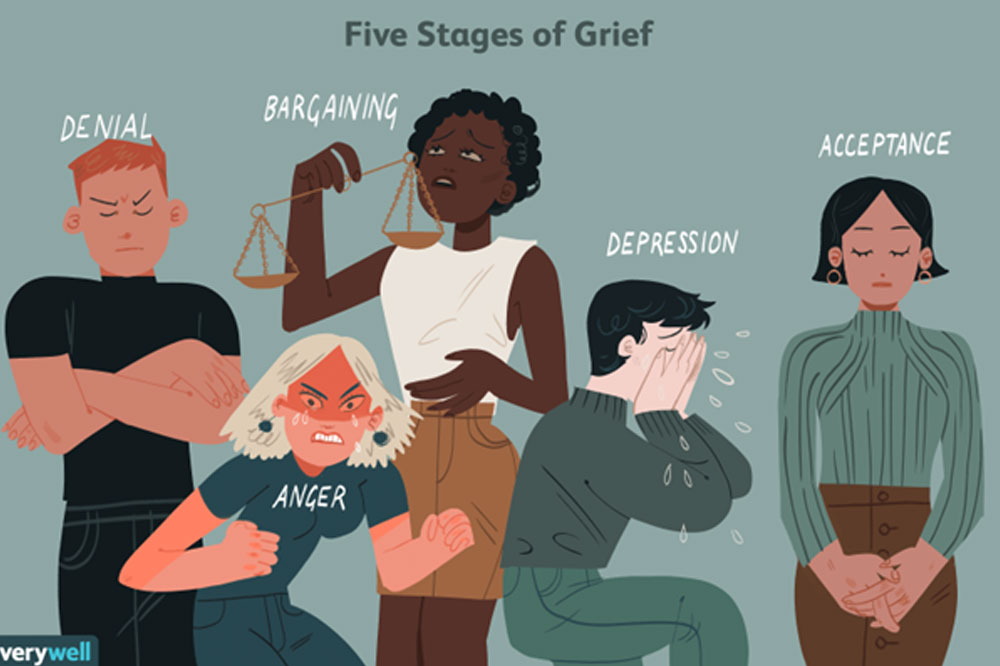There’s no correct way to feel when we’re grieving. Bereavement and loss affect us all in different ways, causing different emotions, thoughts, and physical manifestations of distress. The “five stages of grief” is a model developed by Elisabeth Kübler-Ross, a psychiatrist who specialised in near-death studies, to describe how someone might go through a journey of grief. While it originally reflected experiences of people who were dying from terminal illness, it can also be applied more generally to grief and loss.
Some people don’t agree with this model, or don’t feel that it reflects the grieving process. But others find it helpful in understanding grief – although each stage is different for everyone, and we might not all experience every stage. The stages can each be felt broadly week to week or month to month, but also within a day and in any order as different memories and events can trigger different feelings of loss:
- Denial – After a bereavement or loss, we can be overwhelmed by our emotions. Pretending that it hasn’t happened can be a defence mechanism that can help us cope as we struggle to process events or continue as with life.
- Anger – It’s normal and natural to feel angry after being bereaved. Death can be cruel, and anger allows us to release some of our emotions about our loss. We may feel angry with ourselves for what we did or didn’t do. Or we may be angry at the person who has died or at the circumstances around their death.
- Bargaining – We may find ourselves negotiating with ourselves, with our fate, or with our god if we’re religious, to try to undo or change the loss. We may go over things that happened and want to go back and change them to prevent the loss.
- Depression – As we process our grief we start to focus on the present and the reality of our loss. We may have strong, painful, and frightening feelings of sadness, loss and yearning. We might withdraw and avoid situations or contact with others.
These emotions can last a short time or for years, and they may come and go. But as time passes, most people find they ease, leading to the fifth stage:
- Acceptance – This is when our emotions begin to stabilise, and we learn to live with our loss. We may still feel sadness and regret, and we may never get over our loss, but we can learn to live with it. We can start to accept our new reality, move on with our life and find enjoyment again.
When we experience bereavement or loss, it’s normal to go through a range of emotions, including anger, sadness, loneliness, and guilt. Therapy can help us deal with these challenging feelings as it offers a space for the messiness of loss to unfurl. We can compare it to having to pack a suitcase very quickly: we choose the largest suitcase we’ve got and chuck everything in it. We don’t have time to fold things neatly, we just need to pack. When we bring that suitcase to therapy, we take bits out as and when we’re ready. We choose what we don’t need any more and what things we want to keep. Some things can be neatly folded, and over time we can pack things into a smaller suitcase. Memories that were once painful can become cherished. Our suitcase can become easy to carry, and no longer holds us back.




